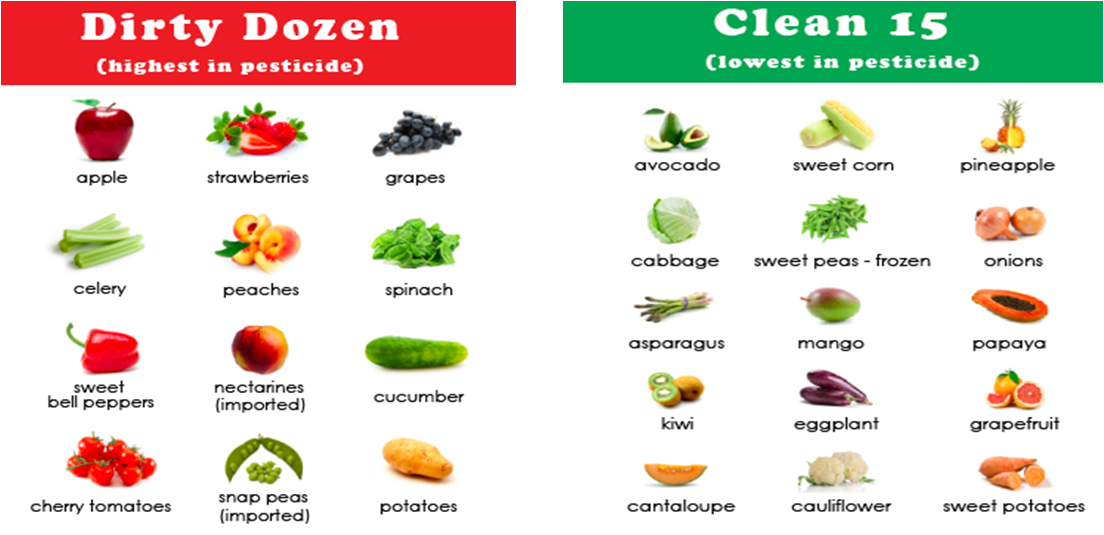The Truth about Buying Organic
by Kiera Boone
It’s no secret that people are starting to become more health conscious. With all the documentaries on fast food (i.e. SuperSize Me and Forks over Knives) and the BuzzFeed Facebook videos on fried delicacies and bacon covered treats, it’s hard to choose between what TASTES good and what IS good. So, to try to bridge the gap between taste and nutrition, it has become a trend for people to lean toward more organic products. These are products that are grown without the use of pesticides, synthetic fertilizers, sewage sludge, genetically modified organisms, or ionizing radiation. Choosing organic products also means animals that produce meat, poultry, eggs, and dairy products do not take antibiotics or growth hormones. Basically, going “organic” means that people must be more aware of the nutrition labels on products they buy when they go grocery shopping and try to get more fresh products. Although fertilizers, pesticides, and bioengineering can be productive for agricultural yields, the chemicals from those items may not be the best for our bodies in the long-run.
Why should I buy organic products?
Although we may want to eat healthier and choose organic items when grocery shopping sometimes it is not as easy as it seems. For example, organic foods are more expensive in general. Paying an extra dollar or two, may not seem like a big deal to some, but to others, that difference is often avoided. Another reason many people stray from organics is because they don’t know the benefits organic products can have. Why buy organic, when the same fresh product it cheaper and a lot bigger? Well, here are a few reasons why organic products can be worth the extra buck:
Benefit From More Nutrients! – It has been studied and proven that organically grown foods are substantially more nutritious. They contain more nutrients that we need such as vitamins, minerals, enzymes, and micronutrients. Furthermore, studies have also shown that five servings of organically grown vegetables like lettuce, spinach, and carrots have more Vitamin C than the same amount of conventionally grown veggies!
Avoid Harmful Chemicals! – Many conventional fruits and vegetables are grown with the use of lots of fertilizers and pesticides. More than 600 active chemicals are registered for agricultural use in America! The crazy thing about the many chemicals being sprayed on crops is that the Environmental Protection Agency (EPA) allows it. Many of the chemicals in the fertilizers and pesticides are approved by the EPA. Organic foods are free of those chemicals.
Avoid GMOs! – Genetically engineered foods and genetically modified organisms are saturating grocery stores all around us. GMOs, or “genetically modified organisms” are living organisms whose genetic material has been artificially manipulated in a laboratory through genetic engineering. The main problem with GMOs is that genetic engineering can sometimes add carcinogens in some foods. Carcinogens increase the risk for cancers. Buying organic products helps reduce the risk of GMOs.
A Guide to Shopping Organic
The Dirty Dozen
Whenever possible, buy these foods organic to avoid potential high levels of pesticide residue.
|
|
The Clean Fifteen
These are the foods that are okay to buy conventional when necessary because they have low levels of pesticide residue.
|
|
 Kiara Boone is an Atlanta, Georgia, native who is graduating from Baylor University with a Community Health degree. She is currently interning at the Waco McLennan County Public Health District. She enjoys cooking PINTEREST recipes, tough workouts, and writing poetry in her spare time. Contact Info: Kiara Boone, [email protected].
Kiara Boone is an Atlanta, Georgia, native who is graduating from Baylor University with a Community Health degree. She is currently interning at the Waco McLennan County Public Health District. She enjoys cooking PINTEREST recipes, tough workouts, and writing poetry in her spare time. Contact Info: Kiara Boone, [email protected].
The Act Locally Waco blog publishes posts with a connection to these aspirations for Waco. If you are interested in writing for the Act Locally Waco Blog, please email [email protected] for more information.

